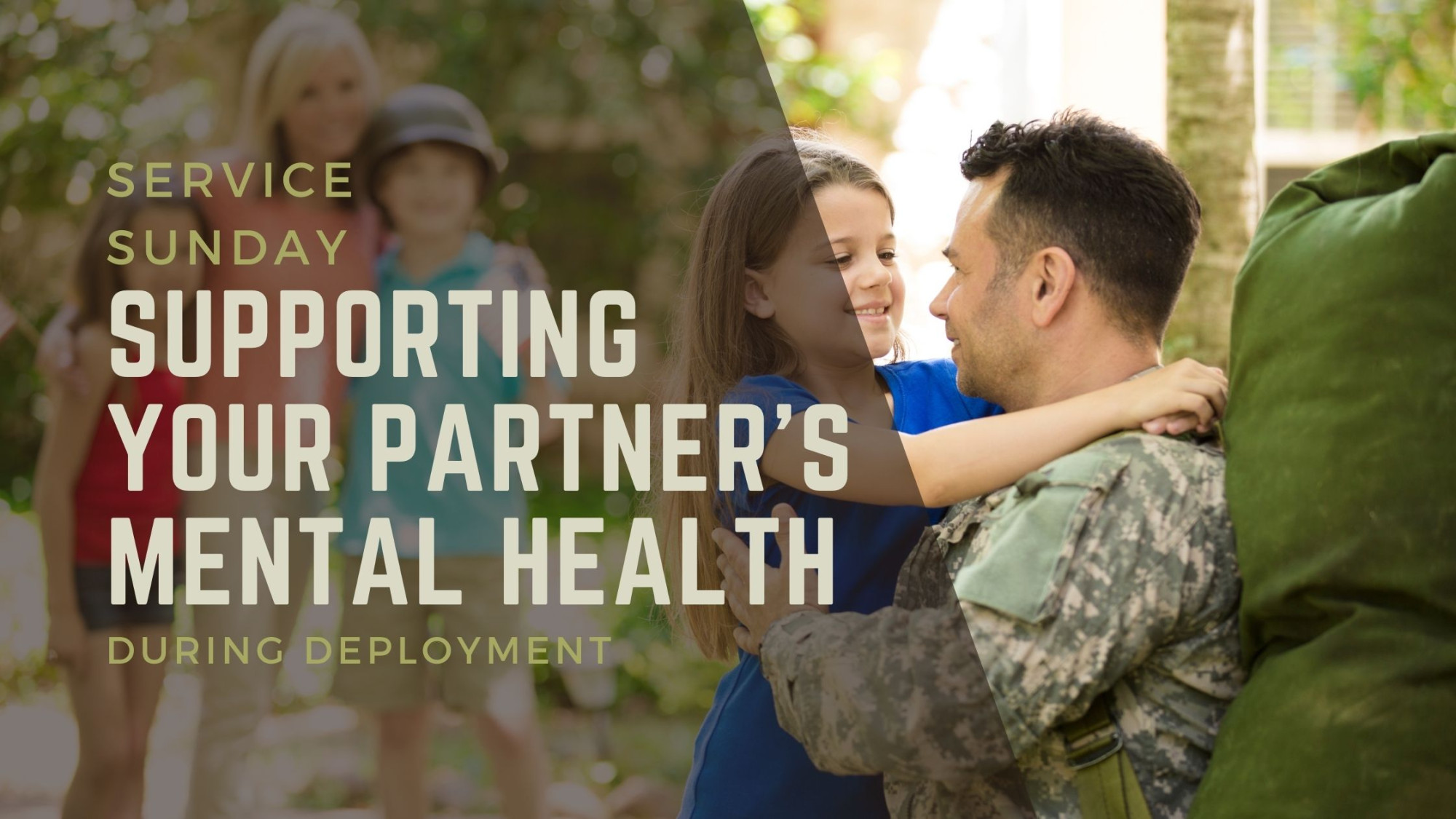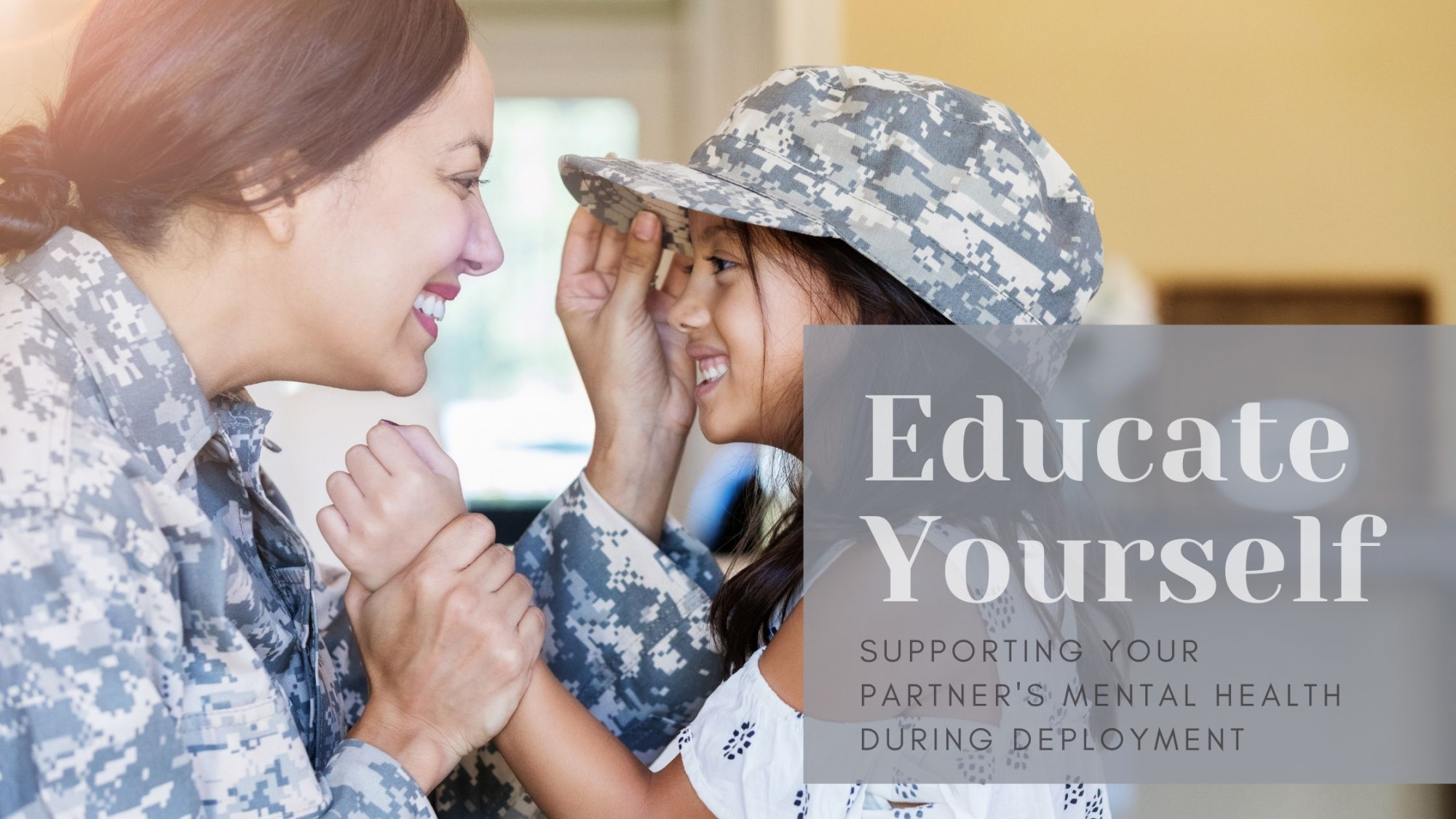
Welcome to Service Sunday, a day dedicated to exploring ways to support and honor those who serve in the military. Today, we will discuss a crucial topic—supporting your partner's mental health during deployment. Military deployments can be challenging and stressful for both the service member and their partner.
Supporting Your Partner's Mental Health During Deployment
It's essential to prioritize and maintain good mental health throughout this period. By understanding the unique challenges and implementing effective strategies, you can offer invaluable support to your partner. Let's explore ways to support your loved one's mental well-being during deployment.
1. Communication and Connection:
Maintaining open and regular communication is crucial during deployment. Here are some tips to enhance communication and connection:
- Utilize technology: Take advantage of video calls, emails, and instant messaging platforms to stay connected with your partner. Regular communication helps alleviate feelings of loneliness and isolation.
- Active listening: Provide a listening ear and be present during conversations. Show empathy, validate their feelings, and offer support. Let them know they can share their experiences and emotions with you without judgment.
- Send care packages: Surprise your partner with care packages that include their favorite items, thoughtful notes, and reminders of home. These gestures can boost their morale and show your love and support.
 Paddle Forward Podcast: Supporting My Family and Partner During Deployments | Listen Now!
Paddle Forward Podcast: Supporting My Family and Partner During Deployments | Listen Now!2. Emotional Support:
Deployments can trigger a range of emotions. Here are ways to offer emotional support to your partner:
- Validate their feelings: Acknowledge and validate the emotions they experience during deployment. Let them know it's normal to feel a range of emotions, including sadness, frustration, or anxiety.
- Offer encouragement: Be their source of encouragement and motivation. Remind them of their strengths and the reasons they chose to serve. Express your belief in their abilities to navigate challenges successfully.
- Seek support networks: Encourage your partner to connect with other service members, support groups, or online communities. These networks provide an understanding and empathetic environment where they can share experiences and find solace.

3. Self-Care:
Taking care of your own well-being is crucial when supporting your partner. Here's how to prioritize self-care:
- Maintain routines: Stick to a daily routine that includes self-care practices such as exercise, healthy eating, and quality sleep. These routines will help you stay grounded and maintain good mental health.
- Seek support for yourself: Reach out to your own support system, whether it's family, friends, or a therapist. Talking to others who understand your situation can provide comfort and guidance.
- Engage in stress-relieving activities: Find activities that help you relax and reduce stress. Engaging in hobbies, exercise, meditation, or creative outlets can help you maintain a positive mindset.

4. Educate Yourself:
Understanding the unique challenges faced by service members during deployment can help you offer better support. Educate yourself about common mental health issues and the resources available. Here are a few key points:
- Recognize signs of distress: Be aware of common signs of mental health issues, such as changes in behavior, mood swings, withdrawal, or sleep disturbances. Encourage your partner to seek professional help if needed.
- Familiarize yourself with available resources: Research mental health resources and support services provided by the military. Knowing where to find help can make a significant difference when supporting your partner's mental well-being.

When supporting your partner's mental health during deployment, it's crucial to have access to helpful resources that can provide guidance, support, and understanding. Here are some valuable resources that spouses of military members from all branches should consider:
- Military OneSource (https://www.militaryonesource.mil/): Military OneSource offers a wide range of resources, including counseling services, support groups, and articles on various topics related to military life and deployment.
- National Military Family Association (https://www.militaryfamily.org/): The National Military Family Association provides resources and support for military families, including information on mental health, deployment, and programs tailored to specific branches of the military.
- Military Family Resource Centers: Each branch of the military has its own Family Resource Center, which offers support, counseling services, and resources specifically designed for military families. These centers can provide guidance and connect you with local resources in your area.
- Military and Family Life Counseling (MFLC) Program: The MFLC program offers confidential counseling services to military families, including support for spouses and children during the deployment cycle. They can assist with managing stress, coping with separation, and providing tools for communication and emotional well-being.
- Chaplain Services: Military chaplains can offer spiritual support and counseling to military families. They can provide guidance, a listening ear, and resources for maintaining mental and emotional well-being during deployments.
Remember, it's important to reach out to these resources and seek support when needed. Supporting your partner's mental health during deployment can be challenging, but having access to the right resources can make a significant difference in your well-being and your ability to navigate this journey together.
Conclusion:
Supporting your partner's mental health during deployment is a vital aspect of maintaining a strong and resilient relationship. By prioritizing communication, offering emotional support, practicing self-care, and educating yourself, you can provide invaluable support to your loved one. Remember that every deployment experience is unique, and being there for your partner with empathy, understanding, and patience is essential. Together, you can navigate the challenges of deployment and promote each other's well-being.

Thank you for your service and commitment to supporting your partner's mental health during deployment on this Service Sunday.
There's more where this came from--are you in the CLUB?

STOP WHAT YOU'RE DOING RIGHT NOW AND GO SIGN UP FOR OUR NEWSLETTER BECAUSE YOU DON'T WANT TO MISS OUT ON THE VALUABLE CONTENT AND COMMUNITY WAITING FOR YOU IN OUR PRIVATE MEMBER AREA.
By joining our newsletter, you'll gain access to a wealth of information about natural remedies and self-care during the postpartum period. Discover the power of herbal teas, essential oils, soothing baths, and herbal supplements, all while connecting with like-minded individuals who are navigating the joys and challenges of motherhood, just like you. Take a step towards prioritizing your well-being and embrace the transformative potential of these gentle and effective natural remedies.
Come join the conversation!
Don't wait any longer—click the button below and join the conversation!
Ignite Your Self-Reflection Journey with Our Self-Published Journals!

Ready to dive deeper into self-reflection and personal growth?
Our self-published journals are designed to inspire and empower you on your path of self-discovery. Explore prompts, exercises, and guided frameworks that will help you cultivate mindfulness, set intentions, and unlock your true potential.
Click the link below to browse our collection of self-published journals and embark on a transformative journey of self-exploration. Elevate your self-reflection practice and embrace the power of journaling to create a life aligned with your passions, values, and dreams.
Explore Our Self-Published Journals Now!
Don't wait any longer—click the button below!





















